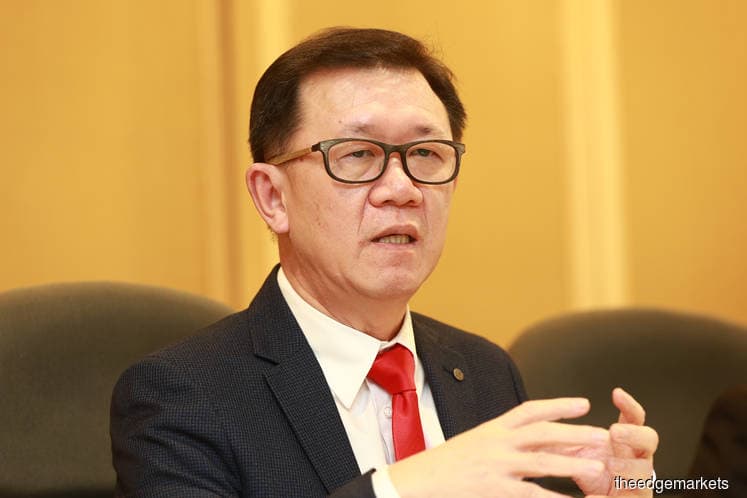
KUALA LUMPUR (Sept 24): The Malaysian government should allow room for an expansionary budget and be less fixated on reducing its deficit in anticipation of slower economic growth amid rising risk of a global recession, said local think tank Socio-Economic Research Centre (SERC).
SERC executive director Lee Heng Guie (pictured) said today the government must be both pragmatic and strategic in crafting Budget 2020, which should include an expansionary budget focusing on sectors, initiatives, and measures that will protect growth-enhancing spending and investment.
Lee said SERC saw a "high and rising" risk of a global recession going into 2020, with Malaysia experiencing a moderation in real gross domestic product growth at a projected 4.5% versus the 4.7% estimated expansion for 2019.
"After making some sacrifice in Budget 2019, the nation is expecting a public cum business-friendly and pro-growth Budget 2020 against a backdrop of rising global recession risk, the trade tensions' disruption on exports, lack of private investment, especially domestic direct investment, income distress for B40 (bottom 40% income) households, graduates' unemployment and the lack of policy direction.
"We (the government) should not be too obsessed with continuing to reduce the deficit to a desired level, but allow some room at least for an expansionary budget," he told reporters at SERC's third quarterly economy tracker briefing here today.
The government is scheduled to table on Oct 11 this year its Budget 2020, which is the final budget under the nation's five-year Eleventh Malaysia Plan which outlines the country's economic growth plan between 2016 and 2020.
Lee said Budget 2020 must manage trade-offs between supporting domestic demand, protecting social spending, and ensuring the optimal mix of spending depending on sector-specific requirements.
Commenting on the country's economic indicators, Lee said SERC foresaw slower household spending in the second half of 2019 due to cautious discretionary spending despite the support of lower interest rates.
He said global trade tension uncertainties and prevailing weakness in the broad property segment would continue to weigh on investment growth.
According to SERC's forecast, Malaysia's private investment is expected to expand 2.6% in 2019, while exports are estimated to grow 0.5% to 1% during the year.